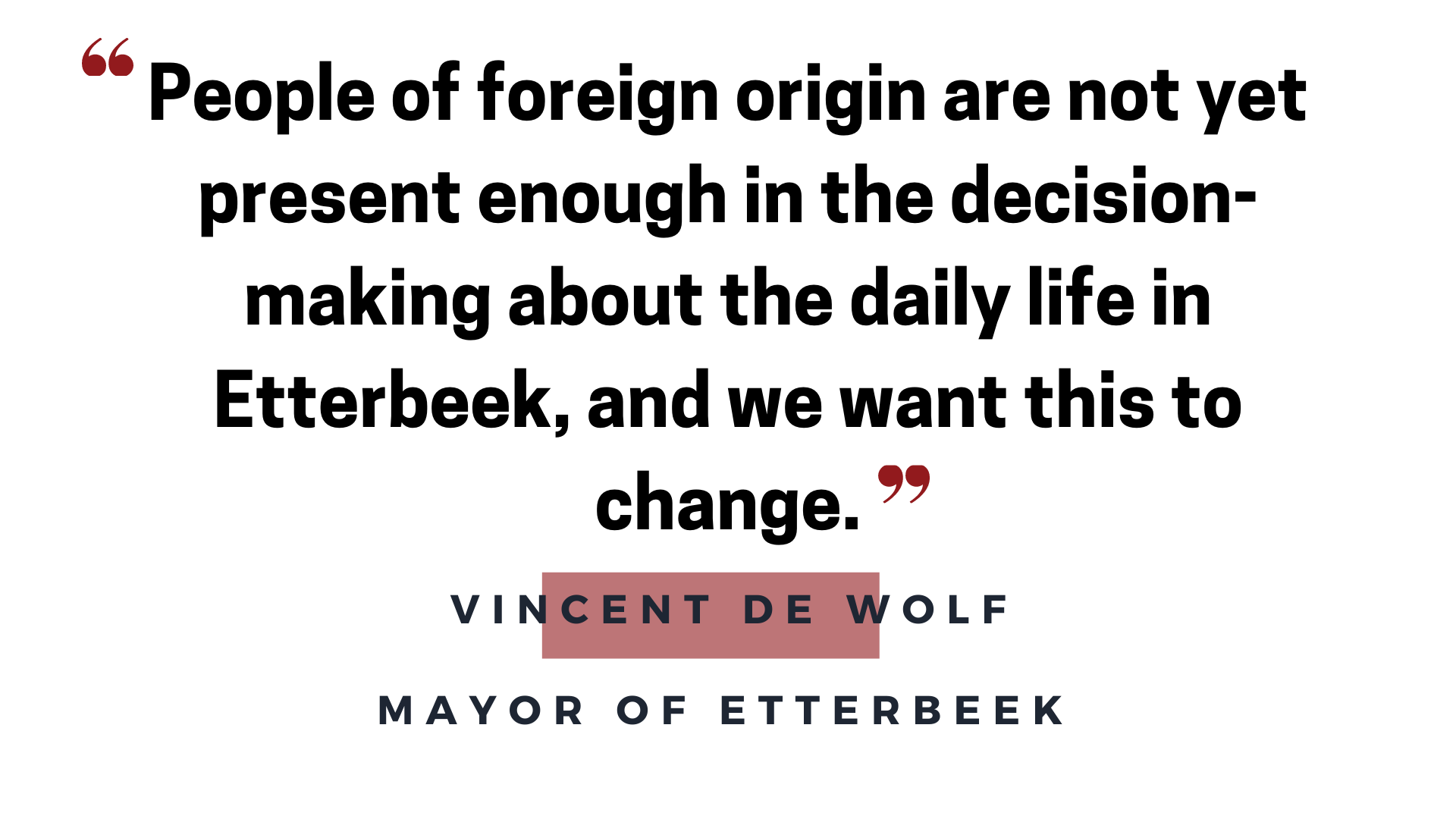One Brussels commune, Etterbeek, has created a new project to engage foreign citizens more actively in local decision-making by allowing them to do so in English for the first time.
Bordering on the European Quarter, it is one of the most international communes population-wise, as half of its 50,000 inhabitants are of a foreign origin, 35% of which come from a European member state. These people, however, can struggle to integrate with daily commune life.
"Ensuring everybody can participate in the commune’s decision-making process is a challenge," Vincent De Wolf, mayor of Etterbeek, told The Brussels Times as “some Europeans, specifically those linked to the institutions, remain within their own structures, also in a socio-cultural way."
As a legally bilingual city, Brussels’ language law states that civil servants with a permanent contract must be able to address the public in both French and Dutch, but not all people of foreign origin are able to communicate in these languages.
The commune’s online platforms and registration systems have been made available in English, and civil servants in Etterbeek’s commune adapt to international communities by speaking English when necessary, however, "people of foreign origin are not yet present enough in the decision-making about the daily life in the municipality, and we want this to change,” said De Wolf.
As part of an initiative to stimulate the inclusiveness of people from a foreign origin, the commune reached out to these citizens with a proposal to join a special committee to give them a chance to debate local issues that would concern them.
Language inclusivity
All meetings will be conducted in French, Dutch, and English, giving participants the option to choose what language they feel most comfortable speaking.
The most important goal of these meetings, which for now will be held online, is to work on improvements based on information gathered during the sessions, De Wolf highlighted.
“It is not worth asking for advice from these people if we don’t do anything with it. If a unanimous opinion on a certain topic is brought forward during those meetings, we have to implement it in the commune,” he explained.
He added that, in any case, questions raised during these meetings will be brought to the commune's general consultative council. “But the intention is that, if it is possible with regard to our budget, we will implement the changes suggested by these groups,” he explained.
During the council meetings, participants will be asked what their inspirations, ideas, and needs are, “but we also want to bring our initiatives and ideas for these communities to the forefront and to ask them what they think about it,” De Wolf explained.
Seats will be distributed by country based on the population groups in the community, with countries including Spain, Germany, France, Romania, Poland, and Italy all getting primary seats on the council. In total, over 600 people applied to take part in the initiative.
A step towards making English official?
According to Brussels Minister for the Promotion of Multilingualism Sven Gatz, who argued the region as a whole can no longer ignore the role of English as a language, English should be adopted as an official language in every aspect of daily life.
He added that the communication challenges experienced during the coronavirus crisis alongside the growing popularity of the language have presented Belgium with an opportunity to discuss multilingualism, "discussions that should include a modernisation of the law to consider English as one of the main languages in Brussels,” he told The Brussels Times.
Fouad Ahidar, Chair of the Council of the Flemish Community Commission, agreed that English should be made an official language so Brussels can fully claim its role as the capital of Europe.
"There are a lot of people who come to live here who don’t speak French or Dutch, so we also have to offer services that can help these people to make sure they feel included,” he told The Brussels Times.
De Wolf recognised English is a commonly used language in the region but said this initiative was not aimed at making English an official language in the commune or making it compulsory for civil servants to speak the language with citizens.
"It is not so easy to introduce a new administrative language in an already bi-lingual city, but I have no problem offering this as a service to our citizens,” he concluded.


